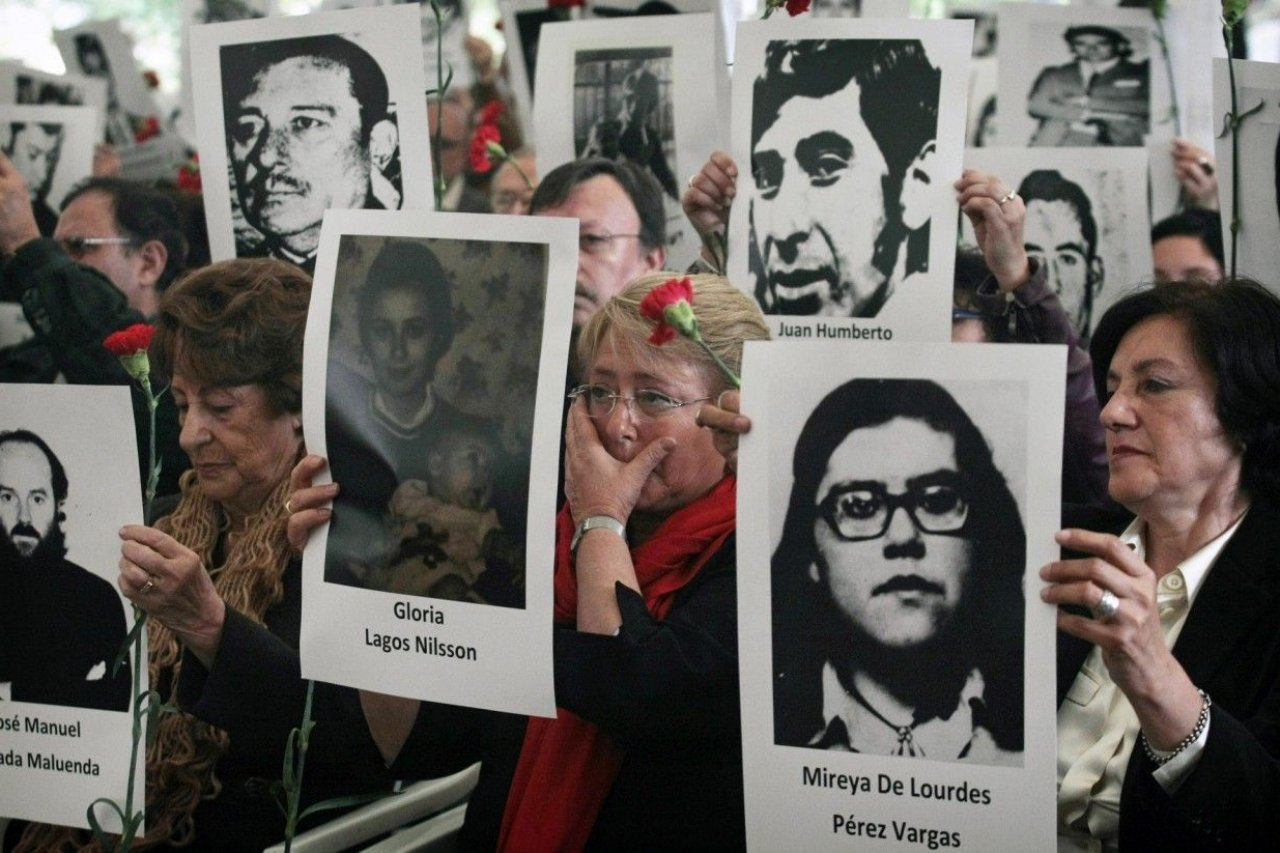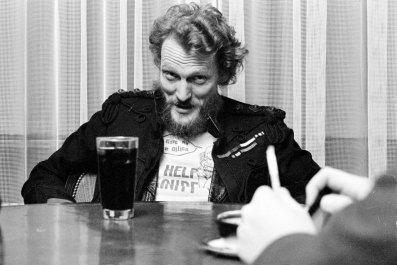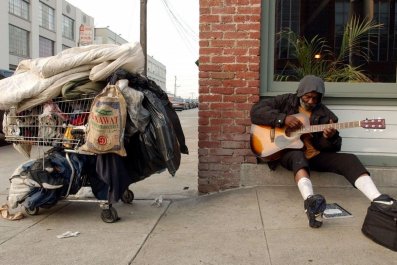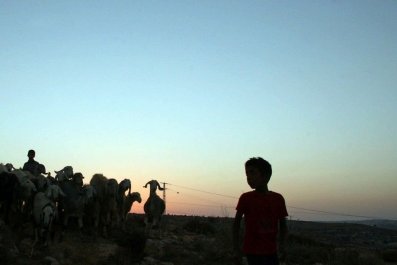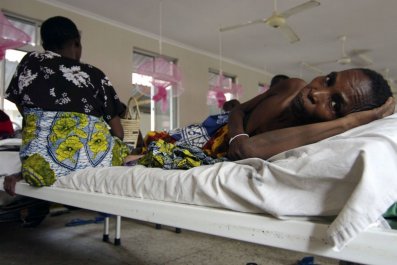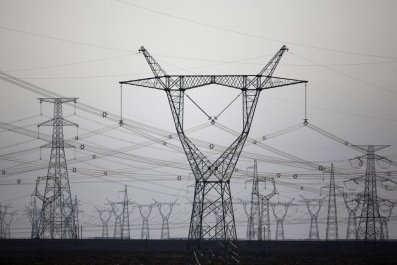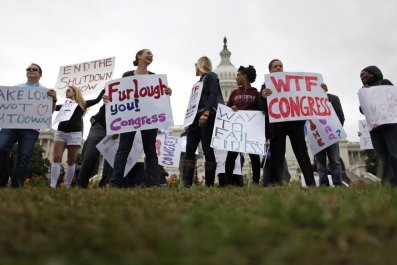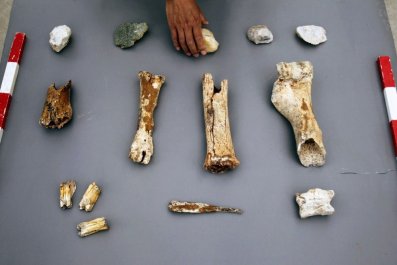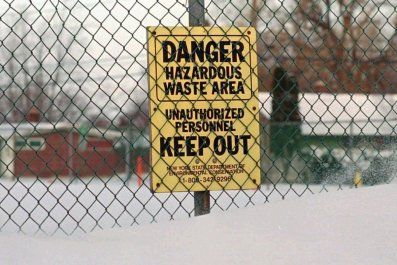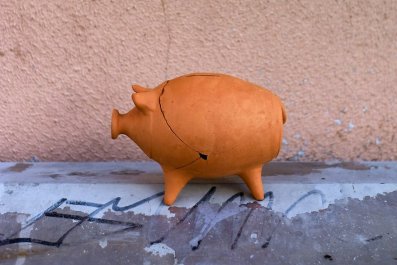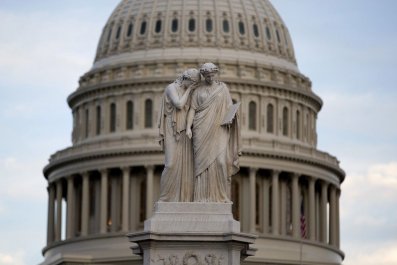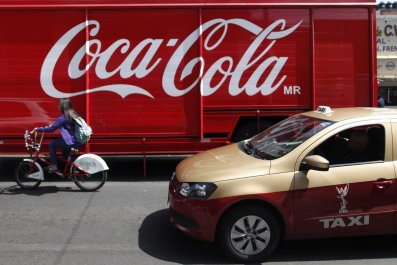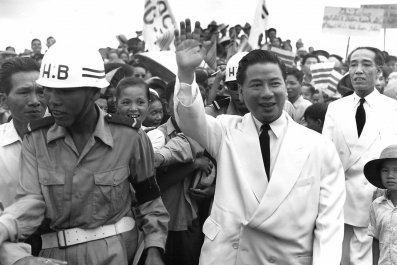"Every Chilean life is shaped by the dictatorship," says Carmen Garfias. "Whether you lived through it, or you ran away from it, or you have only heard about it - it is a part of all of us."
The secret police were in the audience at Garfias's high school graduation in 1975, two years after the CIA-supported coup d'état put General Augusto Pinochet in power, and her life's milestones are colored by the political events of the time - from the coup to the plebiscite that brought down the regime in 1988 to the return of democracy in 1990.
As Garfias recounted horrifying stories from Chile's dark past - more than 3,000 Chileans were killed or desaparecido (the disappeared); 20,000 were imprisoned and tortured; and more than 200,000 went into exile - her husband, Roberto Astudillo, had to leave the room, overcome with emotion from his own memories of those times. Fear was the norm then. When she and Astudillo met in college they didn't dare talk politics until they were married in 1984. "You didn't know who to trust, anybody could be a spy," she explains.
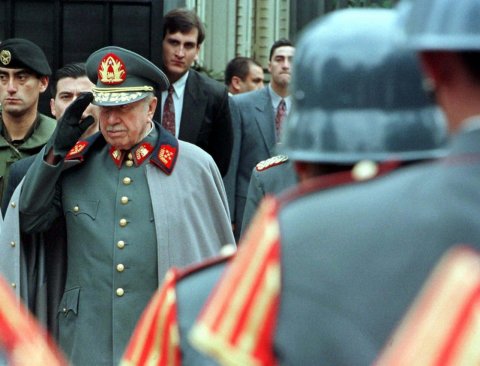
Though the past is always stalking this nation of 11 million, Chile today is focused on its next presidential election, on November 17. For the first time in the country's history, two women are running for the office - former president Michelle Bachelet, a socialist, will face Evelyn Matthei, who represents a fragmented right-wing party. The candidates exemplify Chile's divided past: Bachelet's father was a leftist general who died while being tortured by his fellow military men. Matthei is the daughter of a general who remained a staunch Pinochet supporter until the end.
That end started in 1980, when Pinochet tried to legitimize his government by creating a Constitution that was accepted by a special vote that also granted him another eight years in power. By 1987, however, opposition to the regime had grown and Chile was a pariah internationally. Street protests grew bigger by the day. The Catholic Church even called for the resignation of Pinochet.
In response, the government legalized political parties and set the date of a plebiscite for October 5, 1988: a YES vote meant Pinochet would remain president but general elections would follow. If the NO side had more votes, Pinochet would be forced to step down after a year.
The Concertación de Partidos por el NO (Coalition of Parties for NO), an amalgam of socialists, Christian democrats and radicals, hired an advertising agency called Porta to rule the campaign. The pop-art outcome: a cheerful, colorful campaign crowned by the slogan "Chile, la alegría ya viene" (Chile, joy is coming!) bolstered by the support of well-known intellectuals and artists. Eugenio García, who was the creative director of the campaign (loosely recounted in the 2021 Chilean film No, starring Gael Garcia Bernal), said that the goal of the campaign was to convince people that the best was yet to come.
"The problem we faced was fear," says Garcia. People were afraid of the outcome of the plebiscite, YES or NO. They feared going back to a dark time, the brutal repression of the regime's early days.
NO won with a 55.99 percent of the votes, surprising everyone - including the NO supporters. "We could not believe it," recalls Carmen Garfias. "Celebrations were not immediate - it took a few hours for people to take the streets in joy. And even then, we were discreet, careful. We had no idea what would happen to us, if the army would take the streets again."
While Pinochet's opponents finally allowed themselves to celebrate, the narrow victory highlighted the deep division within the Chilean society.
Pinochet stepped down as president in March 1989, clearing the path for a democratic Chile. He did not, however disappear: the former dictator continued to hold the title of commander-in-chief of the Chilean army until 1998, and then he was senator-for-life - which granted him judicial immunity as long as he remained in his home country.
Meanwhile, the much awaited democratic government brought about changes in the Constitution, restored public participation in political life and revived social freedoms that had been crushed under military rule.
Still, according to many critics, this new democracy has failed to bring justice to the families victimized by the regime. Pinochet was not brought to trial for human right violations until 1998, when he was arrested while in London. A Spanish judge opened a case against Pinochet for human rights violations against several Spanish citizens. The general's defense pleaded dementia (Pinochet was 83), and Chile asked for him to be sent home. He stayed under house arrest while the charges were processed, and passed away in 2006, before he was called into trial.
Heidi Tinsman, an associate professor of history at the University of California at Irvine, who has been studying Chile's history for over two decades says the fact that Pinochet never appeared before a judge was not a sign of failure. "Pinochet died completely de-legitimized," she argues. "He had been recognized as a dictator and a murderer. He never went to prison, but that does not mean that he left with the estimation of the people."
What the next election - featuring the daughters of Chile's historic divide - will bring remains to be seen. "There is an intense debate on several issues in Chile - racial issues, gender issues, the effectiveness of the free market," says Tinsman. "But Chile has made many strides forward."
It's a long way from NO.



